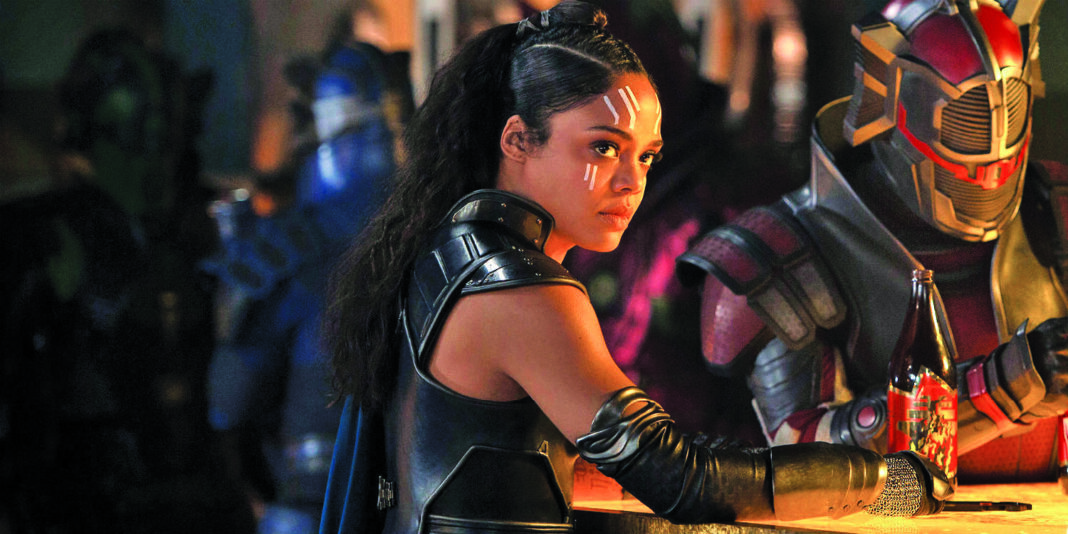A comedy of outsized figures bashing at one another, punching their frenemies into the next county: The idea in Thor: Ragnarok is that the God of Thunder (Chris Hemsworth) has been over-relying on his invincible hammer Mjolnir and his superb head of hair. The former is smashed and the latter cropped. Loki (Tom Hiddleston) spirited away Odin (Anthony Hopkins), king of Asgard, to an old folk’s home on Midgard (Earth). A testy Doctor Strange (Benedict Cumberbatch) intervenes. Odin’s daughter, Hela, the god of death (Cate Blanchett) is unloosed.
This sooty-eyed Maleficent clone, helmeted with antlers that look like they were designed by Erté, plots to slay the universe. Meanwhile, she oppresses the peasantry of Asgard, which, in previous films, we hadn’t really known existed. Thor: Ragnarok parallels two bad monarchs: The action switches from Hela’s misrule to the planet of the cruel, fey Grandmaster (Jeff Goldblum). He diverts the subjects of his junkyard planet with fights at a million-seat arena; armored like Mars, the Hulk (Mark Ruffalo) has been dispatching all comers as a mixed-martial artist. Thor, brought there by a wormhole accident, is caught by a bounty hunter (Tessa Thompson) from his old neighborhood and forced to become a gladiator.
As a director, perhaps also as a Maori, Taika Waititi seems allergic to European-style royal pomp. He keenly underscores the way aristocracy legitimizes itself through art and theater. The movie isn’t as spirited as its circusy poster. The clashes are loud and diverting, but not amazing.
If Hemsworth is tired of playing Thor a fifth time, either he’s showing no evidence of weariness, or else he’s a better actor than most people say he is. Hemsworth’s stalwartness holds these super-ratpack movies together. But it would have been nice if they’d given Thor someone to squeeze in those tremendous triceps—besides the threatened bro-hug with fellow heroes and brotherly villains.









